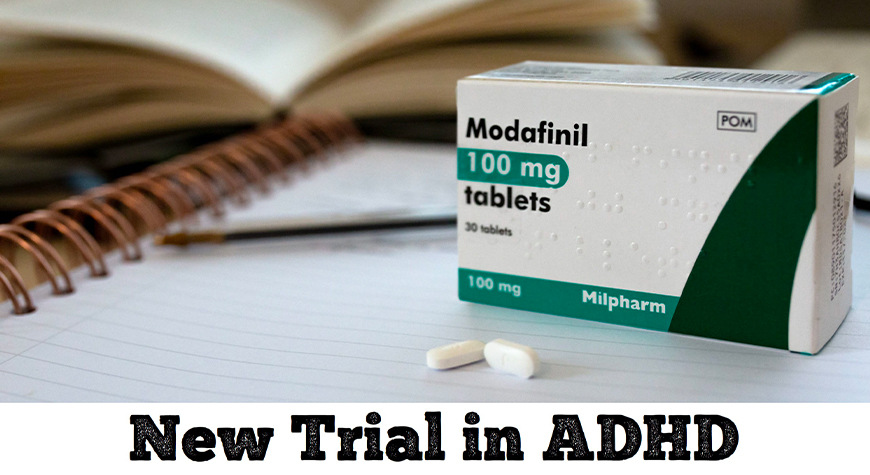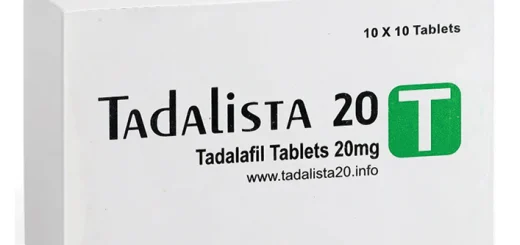Modafinil for ADHD: Benefits, Side Effects, and Considerations

Modafinil is primarily used to treat sleep disorders such as narcolepsy, sleep apnea, and shift work sleep disorder. It would be inappropriate to state that Modafinil for ADHD treatment is specifically prescribed to these patients. However, there are a few studies and anecdotal reports that suggest that it could have potential benefits for people who suffer from that condition.
Although it is fair to point out that the mechanism of action of Modafinil is not completely understood, it is believed that the active ingredient affects certain neurotransmitters in the brain. These include dopamine, which plays a crucial role in attention, motivation, and reward pathways. Each of these is relevant to ADHD.
One could state that the use of Modafinil for ADHD is off-label. In other words, regulatory bodies like the US Food and Drug Administration abbreviated as the FDA, have not approved of its use to treat the condition. However, the evidence backing the efficacy of Modafinil for ADHD is limited compared to standard medications used for that purpose. They comprise stimulants like methylphenidate and amphetamines and non-stimulants like atomoxetine.
Benefits of Modafinil for ADHD
Some people with ADHD have said they experienced certain benefits when they used Modafinil. Having said that, it is important to mention that the medication’s effectiveness could differ from one person to another. One can underscore the need to understand the benefits of Modafinil for ADHD enough, but they are as follows:
Improved Concentration and Focus
Some people have reported enhanced concentration and focus. These are the core challenges for people with ADHD.
Enhanced Awareness and Vigilance
Modafinil is known to promote wakefulness. People with ADHD may find it useful in combating fatigue or daytime sleepiness.
Extended Duration of Action
Modafinil’s duration of action is quite long. Hence, its effects last longer throughout the day.
Minimal Abuse Potential
Modafinil has lower potential for abuse and addiction. Hence, a person with ADHD may prefer it to stimulant medications.
Fewer Side Effects
People taking Modafinil for ADHD have reported experiencing fewer side effects. However, because drug reactions differ from one individual to the next, it is difficult to rule them out.
If a person looked up the ‘efficacy of Modafinil ADHD treatment’ on a search engine, he may find limited evidence to support it. Moreover, it is not suitable for everyone. Therefore, it is essential to approach the use of the medication for the treatment of the condition cautiously.
One must only use Modafinil off-label under a primary care provider’s guidance and supervision. Before considering its use, people with ADHD should consult their doctors to discuss the potential benefits, risks, and alternative treatment options.
Side Effects and Risks of Modafinil for ADHD
Modafinil is usually well-tolerated. The common side effects associated with the medication are anxiety or nervousness, appetite changes, dizziness, dry mouth, elevated blood pressure, headaches, insomnia, nausea, or an upset stomach.
Modafinil is a prescription medication and one must promptly report any side effects, if any, to a healthcare professional.
One must also be aware of the potential risks associated with the off-label use of Modafinil for ADHD.
These are as follows:
Limited Research
Apart from the limited evidence backing the use of Modafinil for ADHD, the long-term effects and safety profile for the condition are not as well established.
Individual Variation
The worst-case scenario is that a medication that is effective for one may cause side effects for another.
Interaction with Other Medications
Modafinil could interact with other medications, including hormonal contraceptives, and reduce their effectiveness. One must discuss all medications, including over-the-counter (OTC) medications and herbal supplements, with his doctor.
Cardiovascular Effects
It could have cardiovascular effects, including an increase in one’s blood pressure. People with existing cardiovascular conditions should exercise caution while using the medication and monitor their blood pressure regularly.
Psychiatric Effects
The medication could exacerbate psychiatric conditions in people suffering from anxiety or mood disorders.
Dependency and Tolerance
Modafinil has a lower potential for abuse, but dependence on it and tolerance for it cannot be ruled out. The patient should adhere to the guidance of a healthcare professional and use it at the recommended dosage.
Considerations Before Using Modafinil for ADHD
When one is considering using Modafinil for ADHD, one must seek a healthcare professional’s advice and keep in mind that it is not usually the first-line treatment for the condition.
However, there are many other considerations, which are as follows:
Medical History
Heart problems, high blood pressure, liver issues, or a history of drug abuse could affect the suitability of Modafinil for a person.
Dosage and Timing
Self-medication and overdosing must be avoided, lest they lead to adverse effects. Being consistent with the timing of the doses is crucial.
Regular Monitoring
Regular check-ups are required to monitor the effectiveness of Modafinil and assess side effects, if any.
Non-Pharmacological Interventions
One should not view Modafinil as a standalone solution. It is necessary to incorporate non-pharmacological interventions, such as behavioral therapy, lifestyle modifications, and organizational strategies, to manage the symptoms of ADHD effectively.
Long-Term Use
The long-term effects of using Modafinil for ADHD are not well-established. Only a doctor will be able to determine the duration for which the medication is safe and beneficial to use, keeping in mind the potential risks associated with prolonged use.
Legal and Ethical Considerations
One should obtain it legally, through the proper channels and with the doctor’s instructions and a proper prescription.
Alternatives to Modafinil for ADHD Treatment
There are many alternatives to Modafinil for the treatment of ADHD, and the choice a person makes is based on his situation. 
Broadly speaking, though, the following are the common alternatives:
Stimulant Medications
- Methylphenidate
- Ritalin
- Concerta
- Amphetamines
- Adderall
- Dexedrine
Non-Stimulant Medications
- Atomoxetine (Strattera): A non-stimulant medication that impacts the neurotransmitter norepinephrine.
- Guanfacine (Intuniv): Another non-stimulant medication that operates on the alpha-2 adrenergic receptors.
Alpha-2 Adrenergic Agonists
Clonedine is sometimes used off-label to treat ADHD, especially in combination with other medications.
Tricyclic Antidepressants
Desipramine and Nortriptyline may be used in certain cases.
Bupropion (Wellbutrin)
It is an atypical antidepressant that is perhaps used in some cases to treat ADHD.
Behavioral Therapy
Cognitive Behavioral Therapy (CBT) is a structured, goal-oriented therapy that focuses on the changing patterns of thinking or behavior.
Behavioral Parent Training (BPT) is a form of therapy that helps parents develop strategies to manage and modify the behavior of their children.
Environmental and Lifestyle Modifications
A person should create a structured routine, establish clear expectations and consequences, provide a quiet and organized study or work environment, exercise regularly, and maintain a healthy diet.
Neurofeedback
This is a type of biofeedback that aims to train people to control brainwave patterns, potentially helping with ADHD symptoms.
Mindfulness and Meditation
The ability to concentrate and pay attention can be enhanced via the practice of awareness and the practice of meditation.
Educational Support
Special education services and accommodations at school or work could be crucial in the management of ADHD.
Conclusion and Final Thoughts
Before considering the use of Modafinil for ADHD, one must consult his primary care provider, who will determine the best treatment option for him based on his individual circumstances, medical history, and symptoms. But if a person who has already been prescribed a different medication for the condition is considering using Modafinil, he must discuss it with his healthcare provider to avoid potential interactions or complications.
[WPSM_AC id=7062]





